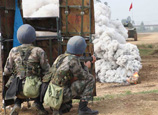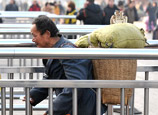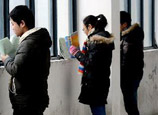
Low cost, low efficiency
However, Chinese enthusiasm for investing in Vietnam is fading due to rising costs, low labor efficiency and a drop in the number of preferential policies.
"Prices are rising in Vietnam. Although labor costs are still low compared with China's eastern coastal regions, the efficiency and expertise of labor is low in Vietnam," Wang said.
According to Wang, the efficiency of Vietnamese workers is usually 15 percent or 20 percent lower than that of Chinese workers and Vietnamese staff dislike working overtime even if the overtime wage is much higher than the normal daily wage.
"Unlike in China, trade unions in Vietnam are independent and powerful and fight fiercely for workers' rights," Wang said.
"This has much to do with Vietnamese traditional culture and the influence of the French who used to rule Vietnam. Pursuit of romance, harmony and freedom is what the Vietnamese learned from the French. Vietnamese people are easily content with the modest amount of money they earn and prefer to devote more time to leisure," said Xiao.
Even though costs have been rising, the Vietnamese government has in recent years offered fewer preferential policies to foreign investors.
"Most of the industrial parks in Ho Chi Minh City (formerly Saigon) no longer enjoy tax exemptions. That means foreign businesses in Vietnam have to pay a 25 percent income tax. For foreign investors, now is not the right time to invest in Vietnam," said Zhejiang native Weng Renyu, manager of the Business Investment Department at Long Jiang Industrial Park in Tien Giang Province, Vietnam.
The deteriorating business environment in Vietnam has led to a decline of inbound foreign direct investment (FDI) to the country.
FDI inflows into Vietnam reached $12.7 billion in 2012, down from $14.7 billion in 2011 and $19.7 billion in 2010, Vietnam Economic Times reported in December.
Vietnamese Prime Minister Nguyen Tan Dung attributed the decline of FDI in the country to lengthy review procedures for investment projects, the prevalence of corruption, a lack of preferential policies, backward infrastructure and a shortage of talent, the report said.
















 This group of photos engrave the "past" left far behind us. For some, we may not even have chance to say goodbye.
This group of photos engrave the "past" left far behind us. For some, we may not even have chance to say goodbye.


![]()
